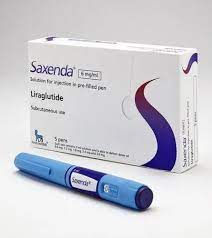Saxenda for Weight Loss: Benefits, Side Effects, and Dosage
Saxenda (Liraglutide) is a medication used for weight loss in adults who are obese or overweight with weight-related health issues. In this article, we will discuss the use of Saxenda, its benefits, side effects, dosage, and precautions. Our team has conducted extensive research on this topic to provide readers with the most relevant and up-to-date information.
What is Saxenda?
Saxenda is an FDA-approved medication that works by mimicking the effects of GLP-1, a hormone that regulates appetite, among other things. Saxenda is a subcutaneous injection that is administered once daily, and it is typically prescribed to patients with a body mass index (BMI) of 30 or higher.
Benefits of Saxenda:
Saxenda has been shown to help patients lose weight and improve their overall health. Some of the benefits of Saxenda include:
- Significant weight loss: Clinical studies have shown that patients using Saxenda can lose up to 10% of their body weight.
- Improved blood sugar control: Saxenda has been shown to improve blood sugar control in patients with type 2 diabetes.
- Reduced risk of heart disease: Saxenda can reduce the risk of heart disease by helping patients lose weight and improve their overall health.
Side effects of Saxenda:
Like all medications, Saxenda can cause side effects. Some of the common side effects of Saxenda include:
- Nausea
- Diarrhea
- Headache
- Constipation
- Low blood sugar (hypoglycemia)
Dosage:
Saxenda is available in prefilled pens with doses ranging from 0.6 mg to 3 mg. The dosage of Saxenda is based on the patient's weight and is gradually increased over the first few weeks of treatment. Patients should not exceed the maximum dose of 3 mg per day.
Precautions:
Before using Saxenda, patients should inform their healthcare provider of any medical conditions they may have, including:
- History of pancreatitis
- Gallbladder problems
- History of thyroid cancer
- History of medullary thyroid carcinoma (MTC)
- Pregnancy or planning to become pregnant
Patients should also inform their healthcare provider of any medications they are currently taking, as some medications can interact with Saxenda.
Conclusion:
In conclusion, Saxenda is an FDA-approved medication that has been shown to help patients lose weight and improve their overall health. It is important to understand the benefits and side effects of Saxenda before using it, and to always follow your healthcare provider's instructions. If you have any questions or concerns about Saxenda, please speak with your healthcare provider.




